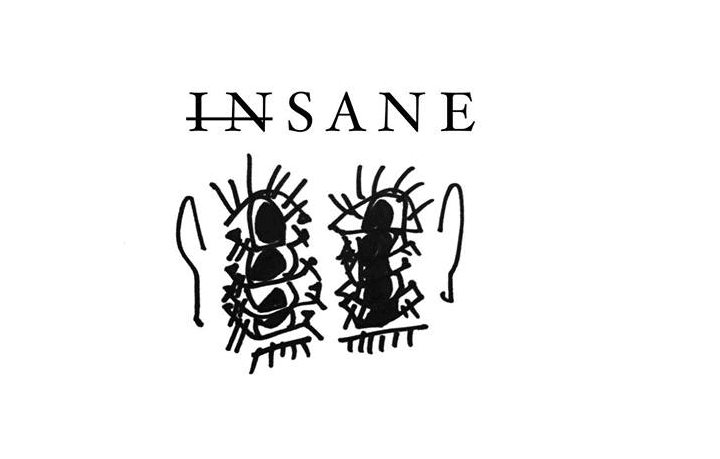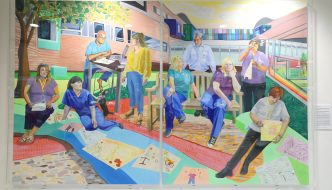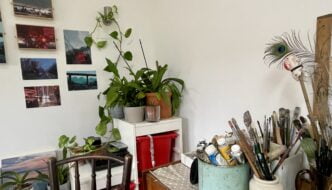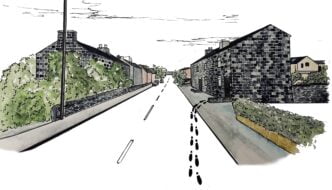
A certain, clasped band of time ensuing each World Mental Health Day is unfailingly intriguing. For many, conscientiousness and expectation swim through the following weeks, gleaming as they slide into thoughts and rebound off the digestion of interactions. More seldom, the event unfurls a blueprint communal consciousness which manifests as little more than a shared Facebook post or two. Social media feeds scream a cacophony: “Let’s talk!”, “Don’t hide it!”, “Destigmatise!”, before the limelight wanes and the subject retreats into hibernation, dormant for another year until people are once again made aware that they should, in fact, ‘Be Aware!’.
Cynical though this may sound, I view World Mental Health Day itself wholly uncritically. Ultimately, it is an advocacy platform carving an indentation on one of our most burgeoning dilemmas. Much like International Women’s Day or World Hunger Day, this speck of time, 24 hours of fame which occupies an atomic 365th of the year and recently observed its 26th birthday, can be nothing but a force for good. The unavoidable irony is, of course, that mental health problems can never be allocated such a neat slot in the calendar. The time frame is antithetic to the cause. Dialogue can and must prevail on an ongoing basis if it is to reflect the horizons of illness itself.
There is no scarcity of hugely important cornerstone establishments such as Mind and SANE attempting to antidote the alienation between intent and substance. In the more senior strata of bureaucracy too, The Health and Social Care Act of 2012 declared an ambition to place mental and physical health on a ‘parity of esteem’. Yet the conditions for ensuring such an essential shift feel somewhat impalpable. Where is this overarching esteem drawn from, in a realm of illnesses which are both so complex and so delicately personal?
The answer may be beginning to divulge itself in the form of “insane”: a multimedia arts platform aiming to bury the rift by forcing a re-examination of the role of creativity, centred on the idea that community support is paramount. In addition to raising money for local youth mental health charity 42nd Street, co-founder Cara Looij explains the motivation for the project as a desire to fight creativity’s evolution from “an expressive need to a marketable commodity”. Considering creativity as a necessity adds considerable depth to the power of the platform. The work displayed is a free-flowing mosaic of testimonies regarding mental health difficulties or experiences. All contributions, from visual art to spoken word, music, writing and beyond, are shaped by unique emotional labour.
The result is remarkable. Having attended both events of March and October this year and subsequently attempting to describe the inimitable experiences, I’ve found myself struggling to encapsulate the evenings without striking a series of over-flogged clichés. Beneath the raw, pulsating hum of expressive exertion lies an unspoken pact of tenderness, which promises to wrap every word, gesticulation and graze of paint in insulative, soft acceptance. The displays are blurbs to the brains of their perpetrators. Each project billows with bravery and a cool awareness that revealing these ‘weaknesses’ is not a fissure for the pervasion of vulnerability, but a sensational and crucial display of stoicism.
So, what of the clause following World Mental Health Day – that allotted bracket where people are invited to take notice, take care, and momentarily lull the chaos? If insane can clarify anything, it is the lesson that if creativity runs on a remedial continuum, so must our encouragement and recognition of its necessity. Every day of the year.
If you would like to attend an upcoming event doing similar work to insane, ‘Constant Aura’ will be exhibiting from 6pm-1am at LEAF on November 23rd, in support of Hector’s House: a charity for those affected by suicide and mental health difficulties
Filed under: Art & Photography
Tagged with: 42nd Street, 42nd Street Manchester, community, creativity, Hector's House, mental health, World Mental Health Day



Comments